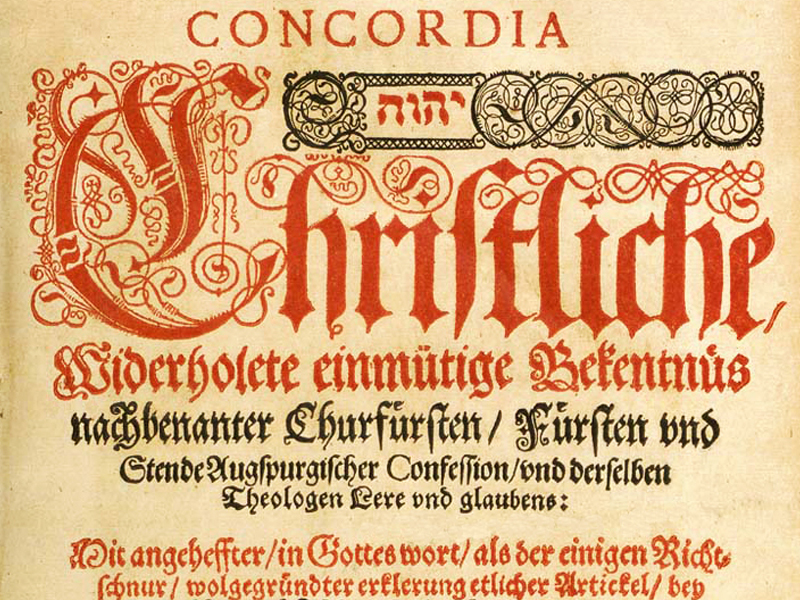by Rev. Michael Schuermann
When I jog or walk through my neighborhood, getting exercise, I pass a lovely home down the street. In the corner of it’s well-tended landscaping stands a statue of about 1 foot high. There stands St. Joseph–or, at least, his effigy–the adoptive father of our Lord Jesus Christ. And in the Roman Catholic tradition, he is the patron saint of families.
There’s really nothing wrong with remembering Joseph and his care for our Lord and Mary, the mother of our Lord. Fathers would do well to emulate Joseph’s trust in the Lord’s instructions and the protection of his family that Joseph provides.
Yet there’s a superstition concerning St. Joseph: if you want to sell your home, bury his statue in your yard. Invoke him in prayer for his aid. And maybe, just maybe, you’ll have an offer, a contract, and be packing boxes in no time!
In the Smalcald Articles, Martin Luther includes The Invocation of Saints as an addendum on his broader article about the Mass under the papacy and the subsequent corruption of the Gospel and widespread abuses in the church that resulted from it. Aside from the crass and ridiculous example given above, there is a significant danger that Luther is warning against here. Read the whole section on the Invocation of Saints (it’s quite short!), and then let’s step through this section of the Smalcald Articles together:
1. Luther begins, “The invocation of saints is also one of the Antichrist’s abuses that conflicts with the chief article and destroys the knowledge of Christ.” Refresh yourself on the chief article. Page back to the Second Part, Article I and re-read it. Take your time. Note all the Scripture that Luther uses; ponder each portion cited. What would you say is the essence of the “knowledge of Christ” based on what Luther writes in Article I?
2. Again, Luther says that the invocation of saints “destroys the knowledge of Christ.” How would you say the invocation of saints does this? What is the consequence of such destruction?
3. Luther writes that the invocation of saints is “neither commanded nor counseled, nor has it any warrant in Scripture.” Read Matthew 15:1-9. What attitude does Jesus have towards those who would command worship which is not focused on Christ crucified? Read Galatians 1:6-9. Based on these two passages you’ve read, with what seriousness should we take the Word of God as wholly instructive for our life of faith?
4. Luther writes that “The angels in heaven pray for us, as does Christ Himself.” Read Romans 8:31-34; 8:26-27. Who does Scriptures tell us, with all certainty, is praying for us? Why is this comforting?
5. Luther then continues, “So do the saints on earth and perhaps also in heaven.” Read Revelation 6:9-10. Who here is praying for us? What comfort does this offer? However, what is clearly not commanded or even illustrated in this Word of the Lord?
6. Read paragraph/reference #26. Luther summarizes all of this, “This is idolatry. Such honor belongs to God alone.” Read Exodus 32. What is the Lord’s attitude towards idolatry? What is the consequence of idolatry, exemplified in the story of the golden calf?
7. Read paragraph/reference #27. We have a tremendous privilege to pray for, and receive the benefit of the prayers of, our neighbor. Read James 5:13-20.
The Rev. Michael Schuermann is pastor of Good Shepherd Lutheran Church in Sherman, Ill.
